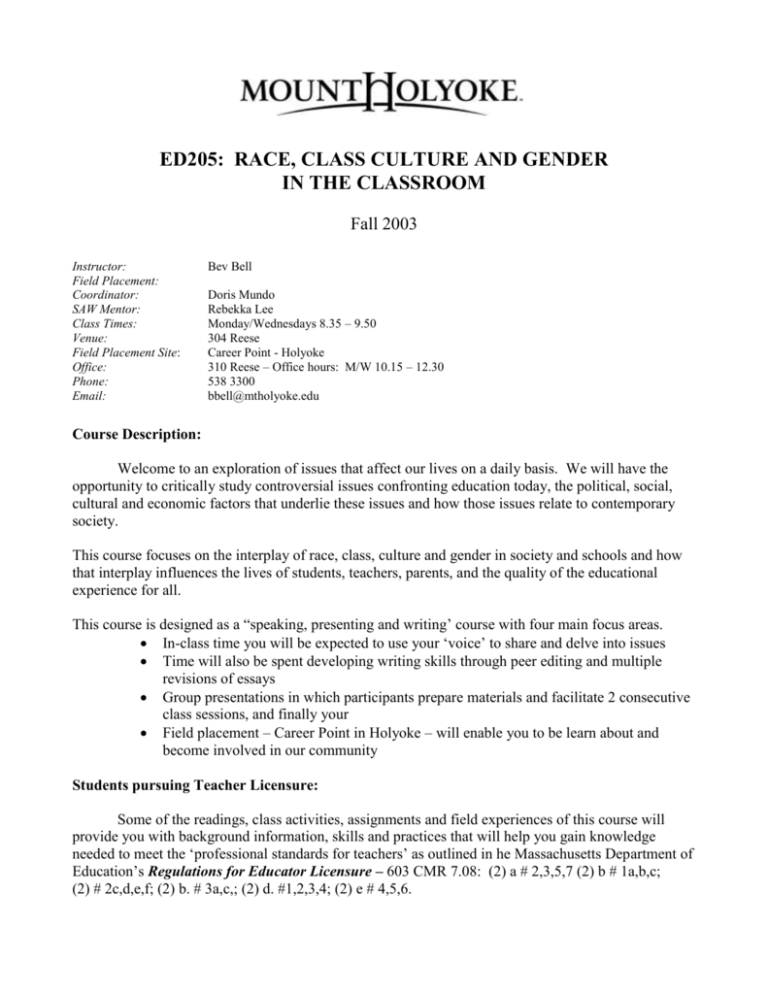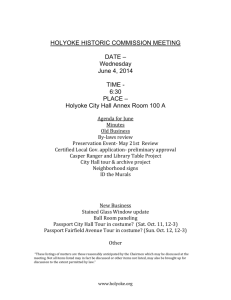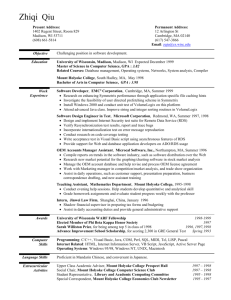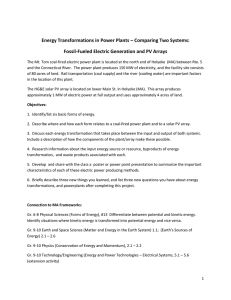Race, Class, and Gender in Education
advertisement

ED205: RACE, CLASS CULTURE AND GENDER IN THE CLASSROOM Fall 2003 Instructor: Field Placement: Coordinator: SAW Mentor: Class Times: Venue: Field Placement Site: Office: Phone: Email: Bev Bell Doris Mundo Rebekka Lee Monday/Wednesdays 8.35 – 9.50 304 Reese Career Point - Holyoke 310 Reese – Office hours: M/W 10.15 – 12.30 538 3300 bbell@mtholyoke.edu Course Description: Welcome to an exploration of issues that affect our lives on a daily basis. We will have the opportunity to critically study controversial issues confronting education today, the political, social, cultural and economic factors that underlie these issues and how those issues relate to contemporary society. This course focuses on the interplay of race, class, culture and gender in society and schools and how that interplay influences the lives of students, teachers, parents, and the quality of the educational experience for all. This course is designed as a “speaking, presenting and writing’ course with four main focus areas. In-class time you will be expected to use your ‘voice’ to share and delve into issues Time will also be spent developing writing skills through peer editing and multiple revisions of essays Group presentations in which participants prepare materials and facilitate 2 consecutive class sessions, and finally your Field placement – Career Point in Holyoke – will enable you to be learn about and become involved in our community Students pursuing Teacher Licensure: Some of the readings, class activities, assignments and field experiences of this course will provide you with background information, skills and practices that will help you gain knowledge needed to meet the ‘professional standards for teachers’ as outlined in he Massachusetts Department of Education’s Regulations for Educator Licensure – 603 CMR 7.08: (2) a # 2,3,5,7 (2) b # 1a,b,c; (2) # 2c,d,e,f; (2) b. # 3a,c,; (2) d. #1,2,3,4; (2) e # 4,5,6. Course sessions The class meets on Mondays and Wednesdays from 8.35 – 9.50 (promptly – bring your breakfast to class if you are running late!) Three to 4 hours per week will be spent at Career Point in Holyoke as the community service learning component of this course Rebekka, our SAW mentor, works to enhance speaking, arguing, and writing in the course, and will conduct some sessions on these during the semester, as well as be available for individual consultation after class hours, for students who wish to share ideas and challenges about writing. Text Books The following books are required for this course and may be purchased at the Odyssey Bookshop: 1. Bigelow & Peterson (1998). Rethinking Columbus: the Next 500 years. Rethinking Schools 2. Tatum, B.D. (1997). Why are all the Black kids sitting together in the cafeteria? And other conversations about race. Basic Books 3. Howard, G.R. (1996). We can’t teach what we don’t know. White teachers, multicultural schools. Teachers College Press. 4. Wildman, S.M. (1996). Privilege revealed: How invisible preference undermines America. NYU Press. 5. The course reader is available from Gayle Higgins. (Pink cover) Course Requirements There are 5 graded responsibilities for this course. 2 formal papers JE reflection papers A collaborative group presentation A field experience Class participation Formal Papers The formal papers are 6 – 8 page essays written on specific topics. These essays necessitate an analysis of the assigned readings, an interpretation of the issues, reflection on your experience and research beyond the required text. All essays are to be submitted in typeface, in draft form. No. of copies and due dates are included in the syllabus. The topics for the essay are: Essay # 1: Essay # 2: A position paper on a controversial issue in education, which has some aspect of privilege at its core. A narrative essay on your racial identity development. Journal Entries The journal reflections are short pieces, usually 1 – 1 ½ typed pages (1” margins and D/S). You will be expected to: answer specific questions posed, share your thoughts, opinions, questions or insights about an assigned reading, or analyze a particular situation occurring at a field site in which you integrate what you have learned from readings and experiences. Collaborative Group Presentation The group presentation involves each group researching, planning and presenting two class sessions towards the end of the semester. While much of the initial phase of this course will be looking at the challenges we face in education, this portion will be the ‘light at the end of the tunnel’ where transforming curricula and messages of hope will be investigated and shared. The class will be divided into three groups, each investigating a different topic; race, class and gender. The groups will be expected to: Collaboratively investigate the topic – looking for examples of liberating/transforming curricula Research material for class readings Plan two lesson sessions Facilitate these session Create an assignment for class participants Once again, Rebekka will be available to help with the planning and presentation, so feel free to contact her in advance. Field Experience The host for your field experience will be Career Point in Holyoke. Doris Mundo is the Youth Development Director and will be visiting us to describe in more detail her expectations and our role at the Career Center. It is expected that your will participate in this field experience for at least three to four hours per week, for a minimum of 30 hours per semester. Once your schedule is finalized, attendance is required each week. If you are ill and cannot attend, you must call ahead of your scheduled reporting time to inform your supervisor at the site. You must also report your absence to me. There is a Campus Community Service Shuttle, which goes to Holyoke, and you may use this if you don’t have your own transport. Class Participation During class, you will be expected to be active participants in the presentation and discussion of course material. Participation in this course does not involve determining correct answers or accumulating facts; rather, participation entails reading, thinking, and working together to broaden awareness and to arrive at better understanding of the issues presented. Much of the learning of the course, therefore will come from the thoughts, insights, and experiences of class members. It is vital then, that you attend regularly, listen carefully, questions one another about aspects that are puzzling (respectfully) and comment thoughtfully on points made during discussion. Another form of participation involves writing workshops sessions in which you are expected to assist one another with revision of formal papers. Evaluation The final grade in this course will reflect your work in the five areas as follows: Activity Formal Papers Journal Entries Group Presentation Class participation Field Experience Proportion 35 % 20 % 25 % 10 % 10 % In order to achieve a good grade in this class it will be expected that you: Attend ALL class sessions Meet ALL your commitments in terms of your field placement Hand in all assignments ON the due date Participate in class in a positive and enquiring manner, sharing your ideas and challenges Take part in the group project in a constructive manner Accessibility Should there be any reason that you feel you will not be able to meet these requirements, please make an appointment with me during the first two weeks, in order to create a plan that will meet your individual learning needs.











